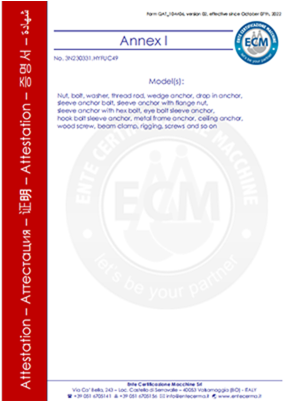Set . 25, 2024 00:52 Back to list
Understanding M8 Nuts Size for Optimal Fastening Performance and Applications
Understanding M8 Nuts Size, Specifications, and Applications
M8 nuts are an essential component in the realm of fasteners, particularly in mechanical, construction, and engineering applications. The term “M8” refers to a metric thread size, specifically indicating that the nut has a diameter of 8 millimeters. Understanding the specifications and applications of M8 nuts is crucial for anyone involved in assembly or manufacturing work.
Specifications of M8 Nuts
M8 nuts come in various specifications, accommodating different requirements based on material, strength, and type. The most common types of M8 nuts are
1. Hex Nuts These are the standard hexagonal nuts that are widely used in many applications. They can be used with M8 bolts to create a strong fastening connection. Their flat surfaces allow for easy gripping with tools.
2. Lock Nuts Also known as locking nuts, these are designed to resist loosening over time due to vibration or other forces. Common types of lock nuts include nylon insert lock nuts and serrated flange nuts.
3. Wing Nuts These nuts feature two projecting wings that allow for manual tightening and loosening without the need for a wrench. They are often used in applications where quick adjustments are necessary.
4. Cap Nuts These nuts have a dome shape and cover the exposed end of a bolt or stud. They not only provide a finished look but also prevent injury from sharp edges.
m8 nuts size

5. Nuts of Different Strength Grades M8 nuts are available in various strength grades, such as Grade 4, Grade 8, and the higher strength categories, depending on the material from which they are made. Common materials include carbon steel, stainless steel, and brass, each offering different levels of corrosion resistance and strength.
Applications of M8 Nuts
M8 nuts are employed across numerous sectors. They are commonly used in automotive applications to secure components, ensuring safety and reliability. In the construction industry, M8 nuts are vital for joining structural elements, machinery, and equipment, contributing to the integrity of buildings and frameworks.
In the furniture assembly industry, M8 nuts are frequently used because of their compatibility with metric screws and bolts. Many flat-pack furniture designs incorporate M8 hardware for sturdy yet easily assembled products.
Electronics and appliances also benefit from M8 nuts, as they aid in securing parts within devices while maintaining a compact design. The aerospace industry utilizes M8 nuts as well, where precision and reliability are paramount.
Conclusion
M8 nuts are a fundamental element in a wide array of applications, thanks to their compatibility with similarly sized bolts and versatility across different industries. Whether you are a professional engineer, a DIY enthusiast, or simply looking to understand the tools you use, having a solid grasp of the specifications and applications of M8 nuts is essential. Choosing the right type and grade of M8 nut not only ensures the safety and effectiveness of your projects but also contributes to the overall quality of the assembly. As technology progresses, the continued innovation in fastener design will likely reveal even more specialized applications for these ubiquitous components.
-
Durable Zinc Plated Flat Washers | Corrosion Resistant Fasteners
NewsAug.31,2025
-
Plain Washer DIN 125 | Zinc Plated Steel & Dimensions
NewsAug.30,2025
-
Hex Nuts: All Sizes, Dimensions & Nylock Options
NewsAug.29,2025
-
Metric Hex Bolts Dimensions: 10.9 & Stainless Steel Specs
NewsAug.28,2025
-
Versatile Fasteners for Secure and Smooth Finishes
NewsAug.27,2025
-
Threaded Rod Solutions
NewsAug.27,2025


